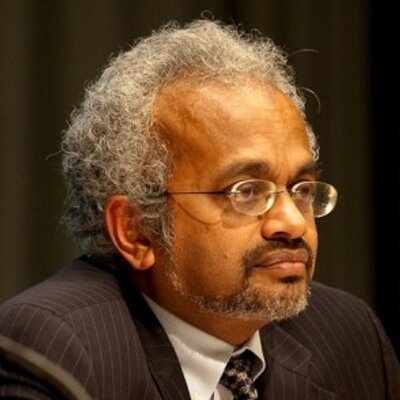058: Morten Jerven on Poor Numbers and Why Economists Get It Wrong With Africa
 Morton Jerven is Professor of Economic History and Development at the School for International Studies at Simon Fraser University in Vancouver, Canada.
Morton Jerven is Professor of Economic History and Development at the School for International Studies at Simon Fraser University in Vancouver, Canada.
In 2014, Morton was appointed Associate Professor in Global Change and International Relations at Noragrica at the Norwegian University of Life Sciences.
Morton has published widely on African economic development, and particularly on patterns of economic growth and on economic development statistics.
Upon the release of his book, Poor Numbers: How We Are Misled by African Development Statistics and What to Do about It, Morton caused uproar across Africa and had been expelled from two conferences. His latest book Africa: Why Economists Get It Wrong is now available on Amazon.
Morton is an economic historian, with an MSc and PhD from the London School of Economics.
Economics:
In this interview, Morten mentions: capital markets, sovereign bonds, National Income Statistics, GDP, demographics, wages, rents, profits, consumption, investment, exports, imports, population growth, m-pesa, debt-to-GDP ratio, poverty and GDP per capita.
Economists:
In this interview, Morten mentions: Jonathan Temple, Stephen Durlauf, Simon Johnson, Shanta Deverajan, Neil Fantom (World Bank) and Wolfgang Stolper.
In this episode you will learn:
- why Morten was expelled from two conferences in Africa.
- about the knowledge problem that exists in economic statistical data.
- if economic statistics is underfunded relative to other social sciences.
- whether economic data from African countries is intentionally misleading or if it’s a methodology and availability problem.
- what is GDP and why is it used.
- the problems with measuring GDP.
- why the production approach is really the only valid method to measuring GDP.
- why a country’s GDP is estimate by proxy and how productivity data is difficult to collect.
- how population growth is used as a proxy for GDP.
- whether we should allow Google and other companies that store big data to provide economic data.
- whether cooperation or conflict between big data and official statistics will emerge.
- how observing the brightness of countries from space is now being used to measure economic growth.
- what the IMF does to missing data, such as GDP.
- why Morten collected his own data for a number of African countries since the IMF wouldn’t share their own.
- whether papers written by the IMF and the World Bank undergo a peer-review process.
- how the ‘branding’ of statistics by the World Bank and the IMF can mislead the user.
- how using the 3 methods of calculating GDP for all African countries shows significant differences when ranking each from poorest to wealthiest.
Quotes by Morten Jerven:
Statistics is the archetypal way of generalising from complex social realities to a very orderly aggregate picture – Morten Jerven
Make everything count. If you write something, make sure it’s going somewhere. If you prepare a lecture to speak about something, make sure you have an idea about how that can become a publishable unit – Morten Jerven
Make sure, as an academic working, it’s important not to think that working long hours is the key to being effective. Start writing early. It’s important – Morten Jerven
Organisations Mentioned in this Episode:
Books:
- Poor Numbers: How We Are Misled by African Development Statistics and What to Do About It by Morton Jerven
- Africa: Why Economists Get It Wrong by Morton Jerven
- How to Lie with Statistics by Darryl Huff
- Handbook of Econometrics by Stephen Durlof and Jonathan Temple
- Planning Without Facts: Lessons in Resource Allocation from Nigeria’s Development by Wolfgang Stolper
Papers/Articles:
- Henderson, V., Storeygard, A. and Weil, D. (2012) “Measuring economic growth from outer space” American Economic Review 102(2): 994-1028.
- Financial Times: Africa Counts the Costs of Miscalculation by Andrew Jack
Resources:
Podcast: Play in new window | Download




